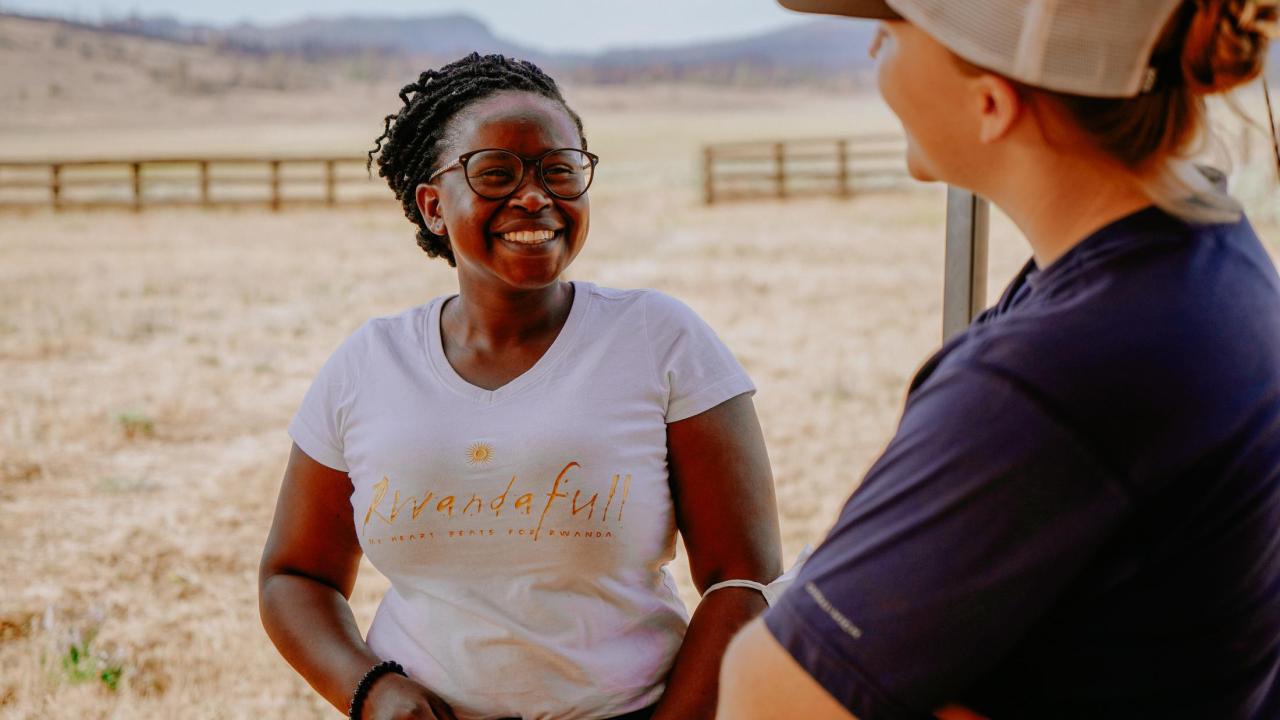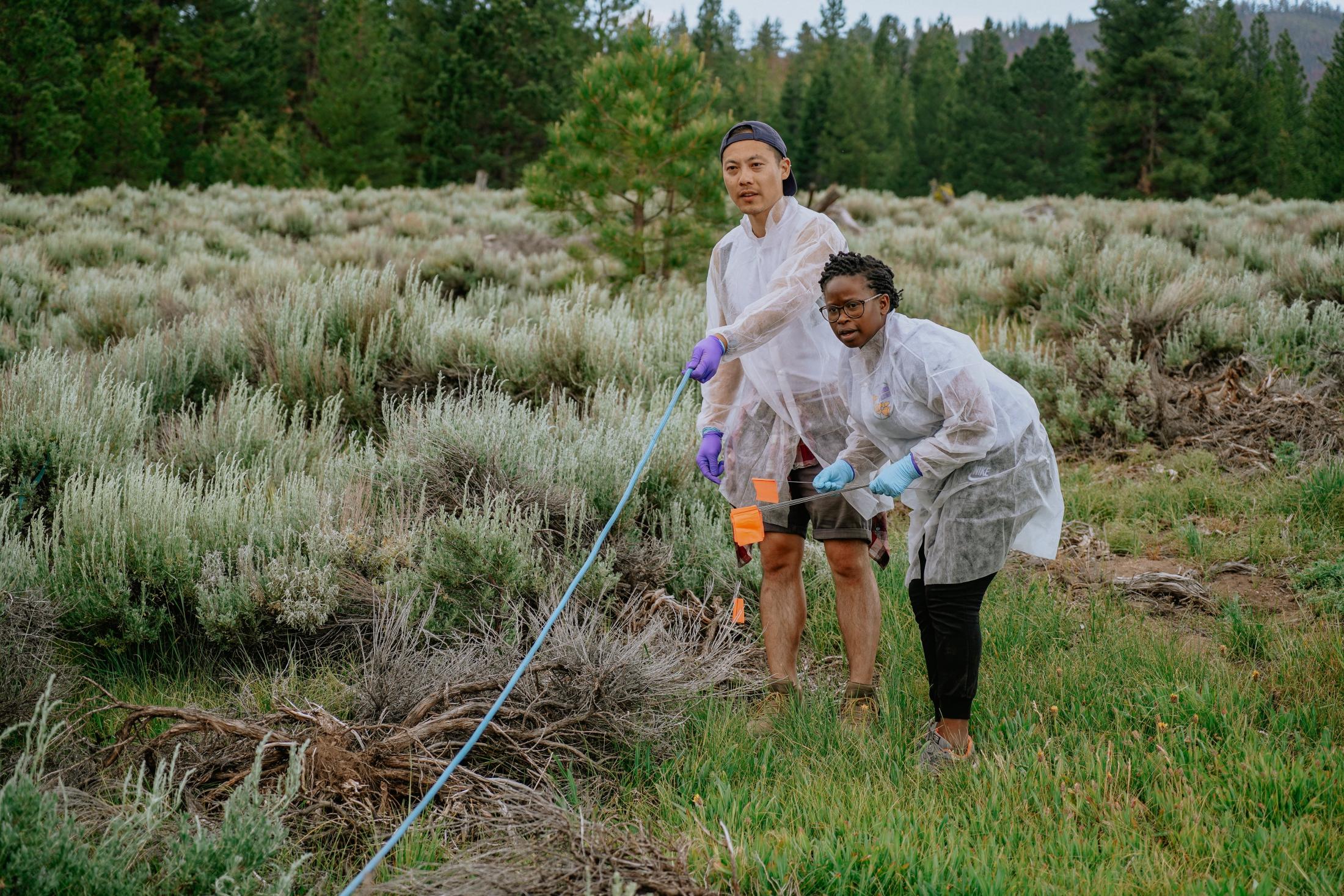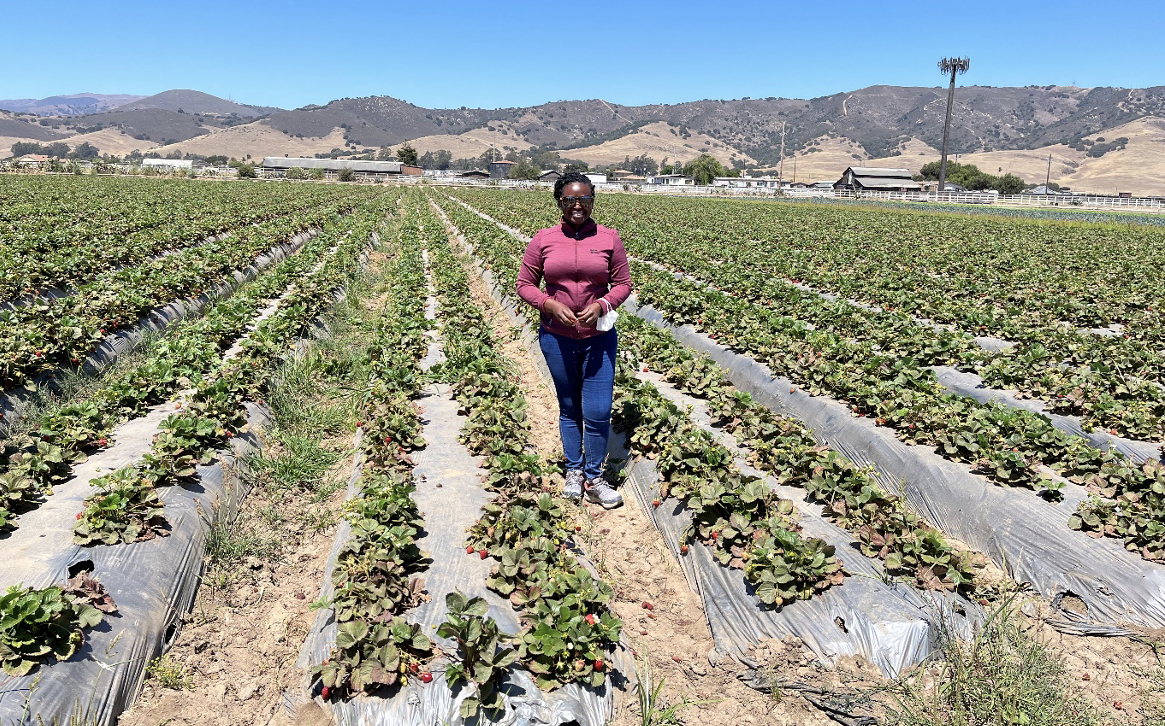
RxOH 2022 Alum: Angelique Ingabire
Angelique Ingabire
Reflecting back on a professional course like no other!
He, my name is Angelique Ingabire, I am from Rwanda. My background is in agriculture-animal science and I hold a master's in One Health with a focus on Integrated Management of Health Risks in the Global South. Currently, I work in the public health research space.
Since graduating [with a degree] in Integrated Management of Health Risks in 2019, I crave pursuing a carrier in One Health which motivates my interest to develop more skills and gain immersive experiences in One Health. With this desire, I was elated to come across the Rx One Health course which is designed to develop competencies of early career professionals to tackle global health challenges using the One Health Approach. The course content and the practical learning style quickly caught my attention.
Reading through the course web page, if any young professional ever told me that I would be easily accepted into the course, I would not believe them as per the great quality of the course. I did polish my application!
Luckily, I was accepted into the course.
Read on my experience attending the course:
This summer, I traveled to the University of California, Davis School of Veterinary Medicine to attend the Rx One Health Field Institute hosted by the One Health Institute. For up to 3 weeks from mid-June to early July, alongside 24 brilliant fellows from different backgrounds and disciplines, we gained a unique professional experiences through a combination of on-campus and field learning sessions; an incredible experience for a lifetime professional growth.
We first participated in classrooms-based sessions on Campus, learning about One Health foundations, disease spillover, emergency zoonoses, and surveillance methods, and new generation approaches to pathogen discovery where we discussed rabies global threats and risk assessment for bat exposure. We explored different principles of community engagement, approaches, best practices, and tools and had a chance to learn from typical cases where principles were applied in one health project in the field and were leveraged in behavior risk and surveillance during PREDICT project. We also covered more theoretical parts of topics such as the health risks and environmental, sociological, and economical effects of oil spills, and response strategies in California which was complemented by insights from a memorable visit to the Marine Wildlife Veterinary Care and Research Center later during the course. Coming from a landlocked country, this is a totally new health risk I would probably never come across professionally if it was not for the Rx One Health Course. Finally, we discussed social-economic determinants of farmers’ welfare along with social determinants of health and health inequalities, and we were enlightened about field tips and challenges.
I appreciated the ice cream social with the Mandela Washington Fellows and a visit to Dr. Michael Wilkes’s family, both networking and integration opportunities into the UC Davis community. Dr. Michael and his wife lived in Rwanda before for professional reasons and I enjoyed a great chat we had about Rwanda’s health system and community.
After campus, Clover Valley Ranch in the Sierra Nevada was our home for a 5 days period of enjoyable camping experience offline just us, course activities, and nature. The valley is currently undergoing a restoration phase following cattle overgrazing which caused damage to the overall ecosystem. We made sense of the effects of land overexploitation and land use changes where ecosystem features such as watersheds, streams, animals, and vegetation are affected.
Faculty members also study on rodent populations in Clover Valley and their potential for disease transmission, and we were delighted to get introduced to the full experience. After the PPE Olympics session, rodents trap demonstration, several field preparations, and laboratory simulation activities, it was thrilling to be in the field to install our rodents’ traps at the night using a transect method. We also participated in sampling, measuring, and releasing the rodents the next morning. Did I mention that it was the first time I properly learned about the correct use of personal protective equipment (PPE)? Yes, the PPE Olympics session was a timely and informative session for me!

From the Sierra, we next traveled to the Hastings Natural History Reservation located on the central coast of California. The center is under the management of UC Berkeley and hosted us for the rest of the training period. While there, we learned about several topics including antimicrobial resistance and oiled wildlife. We made an educative site visit to the Salinas valley, where we visited ALBA, a farm that trains agriculture field workers from mostly low resources Latino communities in organic farm management. We learned from a community member who benefited from ALBA training and enjoyed hearing about his journey of resilience from working as an employee to owning his piece of land, the land challenges he faces, and community strategies that are in place in response. We also enjoyed picking fresh strawberries directly from the field.

In addition, to enhance our learning about the marine ecosystem, we had an opportunity to tour the Elkhorn Slough on Monterey Bay and learn about the wastewater runoff land-to-sea pathogens transmission scenario. It was also fortunate to visit the Marine Wildlife Veterinary Care and Research Center which leads scientific investigations on stranded mammals such as sea otters where we learned more about marine research and its contribution to the crosscutting One Health work.

For the last session of the course, we worked all together to build up our capstone project, where we were asked to collaborate among teams of a One Health community to develop a response to an earthquake scenario with an epicenter in Salinas, California. We leveraged all the knowledge acquired throughout the course to think through response coordination, roles and structure, risk assessment, resources, and communication, and came up with what could be a realistic response plan. From the experience, I have improved my understanding of what One Health is in practice. Learning from typical issues strengthened my knowledge and technical skills. I have enhanced my problem-solving, teamwork, and collaborative skills.
Overall, I found the course professionally rewarding and I definitely gained essential skills for my future career in One Health. The experience helped me to explore my career aspirations and it helped me identify some research opportunities as I think through Ph.D. work as a way forward.

Towards the end of the course, during the last of the many sharing sessions, our instructors asked us to reflect on our journey, and share our key learnings and transformative sessions. The question was very triggering to me, when my turn came, I could not hold back my tears as I thought of the overall changing experience. I could not believe I was here. My experience was that of typical professional growth. My concept of One Health is always complex, but the course helped me break it down into several pieces of the puzzle and how they are approached to resolve health issues.
I absolutely treasured a learning summer in California. I improved for the better both personally and professionally. I am grateful for the learning support of the friendly and amazing day-to-day course instructors; Dr. Jennie Lane, Dr. Woutrina Smith, and Dr. Robyn Stoddard, and for the funding opportunity that made my participation possible.

